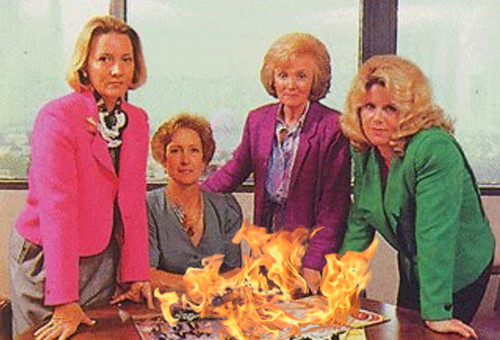After a couple of years in graduate school, I wish I could go back in time and retake my undergrad classes. How did I ace all my statistics exams in grad school when I almost failed the class as an undergrad? Why did I pull so many all-nighters in college when I had few time commitments outside of class? Here are some of the lessons I’ve learned by going back to school as an adult:
1. Stay organized from day one.
I’ve been taking 2-3 classes a semester while working full time, so it would be easy to miss a deadline. As soon as I get my syllabi, I put class dates and important deadlines on a “school” Google Calendar. It shows up in bright red and sends me reminders – just the kind of subtlety I need.
2. Read smarter.
As an undergrad I’d do my reading, then later return to study it. Now, with less time, I immediately identify the important concepts and either outline them or, if I will be tested, create flash cards (I use studydroid.com to enter cards on the web and study on my Android phone). This boosts my comprehension while reading and saves hours of preparation during final exams.
3. Keep it all in one place (preferably online).
My notes, assignments, papers, and readings (if possible) are all in Google Drive. If I have an insight when I’m away from the computer, I can access and edit from anywhere. I’ve eschewed heavy textbooks for e-books and Kindle editions so I can sneak in a chapter of my reading in a waiting room or on the bus.
4. Put away the stopwatch and think outside the paper.
As an undergrad, I’d sit in front of a blinking cursor for hours to satisfy some masochistic requirement of “hours spent writing a paper.” As an adult, I realize that offline planning can skim hours off that paper, and it’ll be a much better one too. This week I planned papers in the shower, during a run, as I was cooking dinner…
5. Create weekly study sheets for non-humanities classes.
For classes like statistics and accounting, I got a feel for the scope of the material each week and then broke it down into smaller parts. Each week, I made myself a study sheet with formulas and the various types of problems along with the steps necessary to solve them. This helped me identify the concepts that needed more practice and was so valuable for review at the end of the semester.
6. Make room for school, but don’t put your life on hold.
I ended up practicing statistics in the passenger seat of our anniversary weekend road trip…on a Dunkin Donuts bag. I read e-books on planes and took online quizzes over hotel wifi. The past two years have been filled with school but also fun and adventure. Keep enjoying your life or you’ll get burnt out. If I had been stuck at home, I probably would have been listlessly staring at that blinking cursor.



